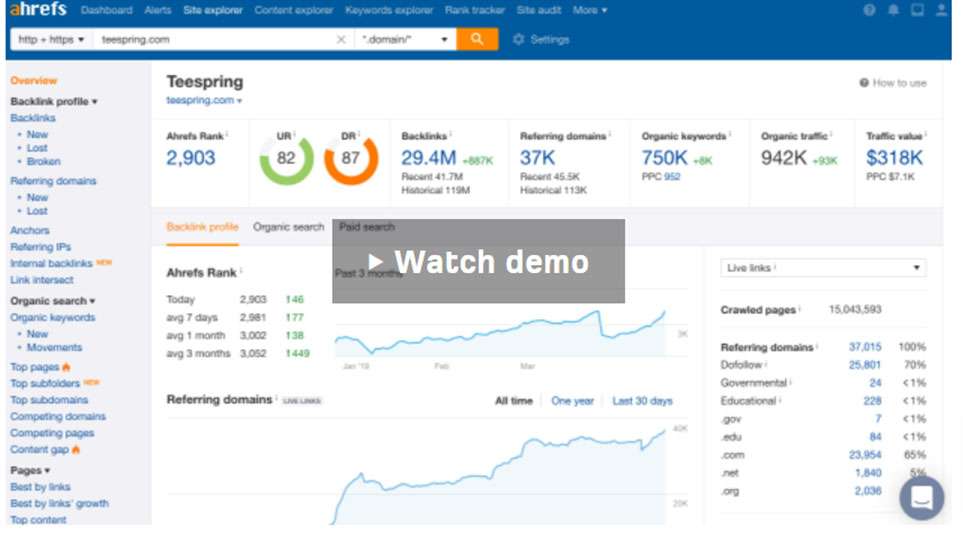Understanding business rivals and what they provide can enable you to differentiate your products, services, and marketing. In addition, it will customize competitive rates and answer competitor marketing efforts with your ideas.
You may use this knowledge to make marketing strategies that tell your rivals’ weaknesses while also strengthening the overall business results. You may also examine potential challenges posed by both new entrants and established competitors in your firm. This understanding will help you in being practical about your success chances.
A successful marketing plan is built on competitive research. After all, if you can’t see your rivals and their business strategies, you’ll find it challenging to set yourself and your product apart.
But how do companies figure out who their main rivals are and their plans? Here’s our five-step plan for identifying your rivals, researching them, and channeling that information into effective marketing that suits your consumers’ demands.
Before moving on to the article, let’s try to know the competitors related to business.
Table of Contents
Who are your Competitors?
Every firm is up against rivals. Even if you are in a cafe in the town, you’ll have to compete with movie theatres, nightclubs, and other businesses for your customers’ money. You are no longer only competing with your nearby neighbors because of the rising Internet usage to buy products and services and locate locations to visit. So you may see up coping against companies from different places.
Your competition might be a new company that offers an alternative or similar product to yours, rendering yours outdated.

Here are two different terms:
1. Direct Competitors
It refers to the companies or publishers selling or marketing the same products or services as yours. Before buying or selling choice, the customers will assess you and your direct competitors.
2. Indirect Competitors
It defines the companies or publishers who have no interest in selling or marketing the same product as your business but compete digitally. They work on the same content and keywords as you do. In short, they target your audience.
How to Know About Competitors
A few things can give you clues about competitors:
-
- Local business directories
- Chamber of Commerce
- Advertising
- Press reports
- Exhibitions and trade fairs
- Questionaries
- Internet searching for similar products or services
- Customers information
- Marketing and flyers literature
- Searching patent products identical to yours
- Planning applications and building works
How to Find Competitors Of a Company
Now that we’ve covered why it’s critical to know your rivals, we should discuss how to find your competitors on the web. There are various contender research methods, and we’ll discuss them all.
1. Internet Searching
The first way you can find your competitor is through internet searching.
1. Begin to Find Top Keywords and Ranking for them
No matter what your industry is, it’s fundamental to know what keywords mean the most to your business. These are the most important keywords you need to rank significantly for in search. To search for them, follow these steps:
Make a waitlist of keywords that ring a bell. These will be the products or services that you offer.
After making that rundown, grow it by entering those keywords into a tool like KeywordsFX. KeywordsFX will give you various varieties of that keyword.
Since you have your eye on these crucial keywords, you’ll have the option to look for them on Google and see who shows up at the highest query point. These are your top rivals since they appear in queries for keywords your business also needs. It also implies they offer similar products or services and target the same.
Goodness also implies they have firm marketing plans to rank profoundly for their keywords.
2. Search Products or Services on Google
Play out a fast Google search of the products and services you offer. Any company that positions on the top page is your real rival, yet don’t neglect to focus on those on page two. When you google your products or services, it gives both of you bits of pivotal data:
- Who your top rivals are (companies that position for similar keywords you need to target).
- How much effort do you need?
For instance, if you don’t rank on the main page, you realize that you have work to do.
You’ll need to observe firms that show up on pages one and two.
3. Do this Again as a Local Search
Play out, another Google search of your products and services with your area connected.
For instance, if you’re a bloom shop working in Florida, have a go at researching “blossom shop Jacksonville, Florida.”The results you see for your nearby search will give you an understanding of your local rivals. Considering you have a local business without an online store or don’t have more than one area, these contenders will be dangerous for you.

4. Check Top Ranking Sites
Search your top rivals by looking for your industry on review sites.
For example, assuming you’re a plumber, type “plumbing [location]” into Yelp. The results will show you the top firms in your space that match your industry.
Since these firms are considered “high rank” in your area, you can think that they’re your biggest rivals. You can also check them on other sites as well.
5. Use Competitor Analysis Tools
At last, the best and simplest way is to use competitor analysis tools to spy on your rivals.
2. Find Competitors Using Tools
We talked about the ways by which you can find competitors online. Besides, you can use different tools to find the answer to how I can spy on my competitors.
1. Ahrefs
Ahrefs is an intelligent tool that allows you to stare straight into rival organic traffic. Likewise, you’ll have the option to look at their backlink profile, their keywords, and, surprisingly, their paid search metrics. With that understanding, you’ll have a complete image of how you need to win their clients and outclass them in search.

2. SEMrush
How does your web-based presence contrast and your competitor? SEMrush can help. SEMrush gives SEO reviews to help you understand where your campaigns stand, position tracking, backlink reviews, and even thoughts to assist you with acquiring online traffic.
With their insight, they help you understand where your rivals rank and how you can reach them.

3. SpyFu
If you’ve at any point needed a tool that could end up being helpful to you to see each keyword that your competitor uses for ads, and ranking, SpyFu is an innovative tool for you. This tool helps you expand your site traffic by assisting you with understanding how your rival acts in search and then some. In addition, they give contender SEO keywords, a complete keyword positioning history, contender backlinks, and thus more.

4. Buzzsumo
Buzzsumo is an incredible tool for helping you the content that works for your business and the top keywords. Even though it doesn’t tell your competitor, it provides you with a thought of what content you’ll need to write against the high-ranking firms.

5. Searchmetrics
Searchmetrics gives the best knowledge about you and your rival content and online presence. This tool also provides an idea that assists you with deciding areas of chance that your rivals aren’t focusing on – giving you the high space in getting customers. This tool can help you choose and focus on your target audience with the perfect message at the right time and gives a broad insight to back up your strategies.

Final Thoughts
We’ll have to understand you and your rivals before putting together a one-of-a-kind, personalized digital marketing plan that will help you stand out from competitors in search and improve conversions.






 & Passion.
& Passion.